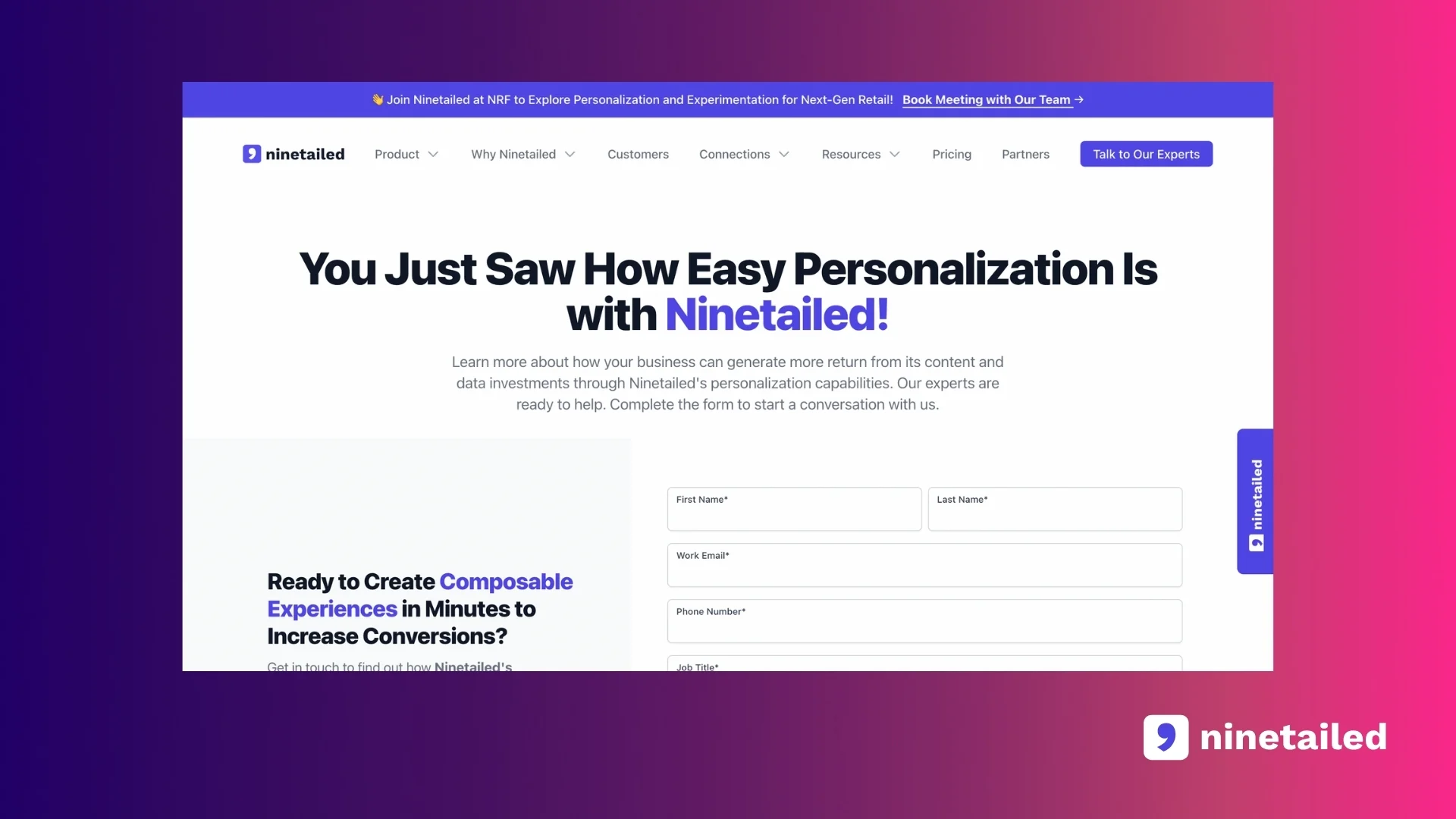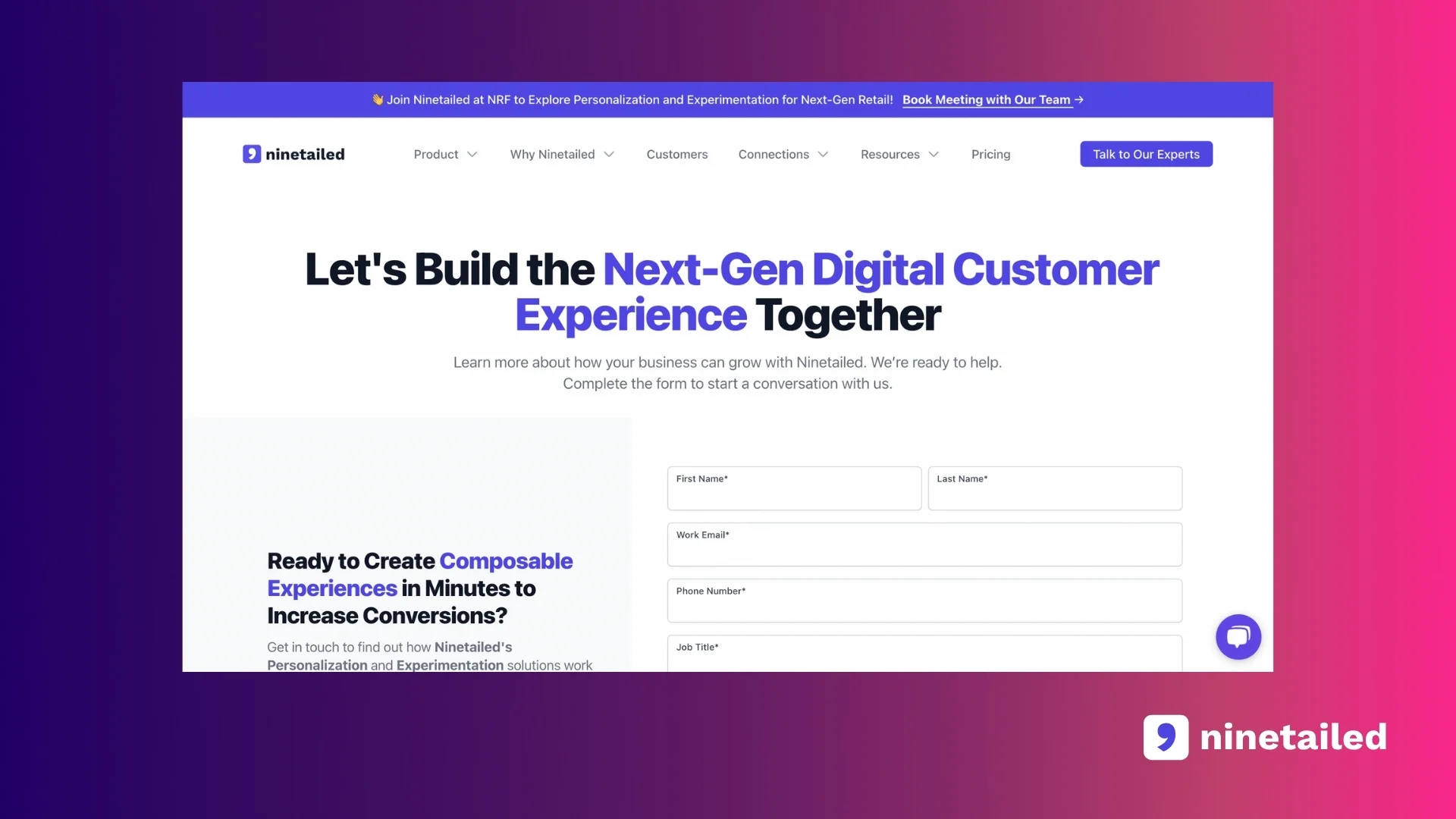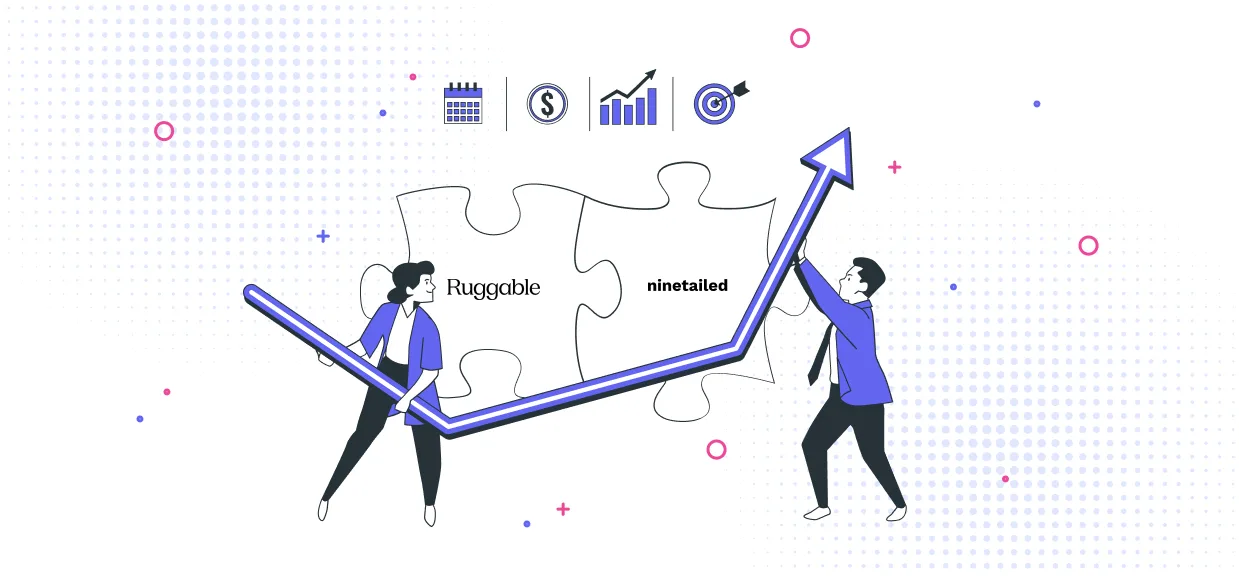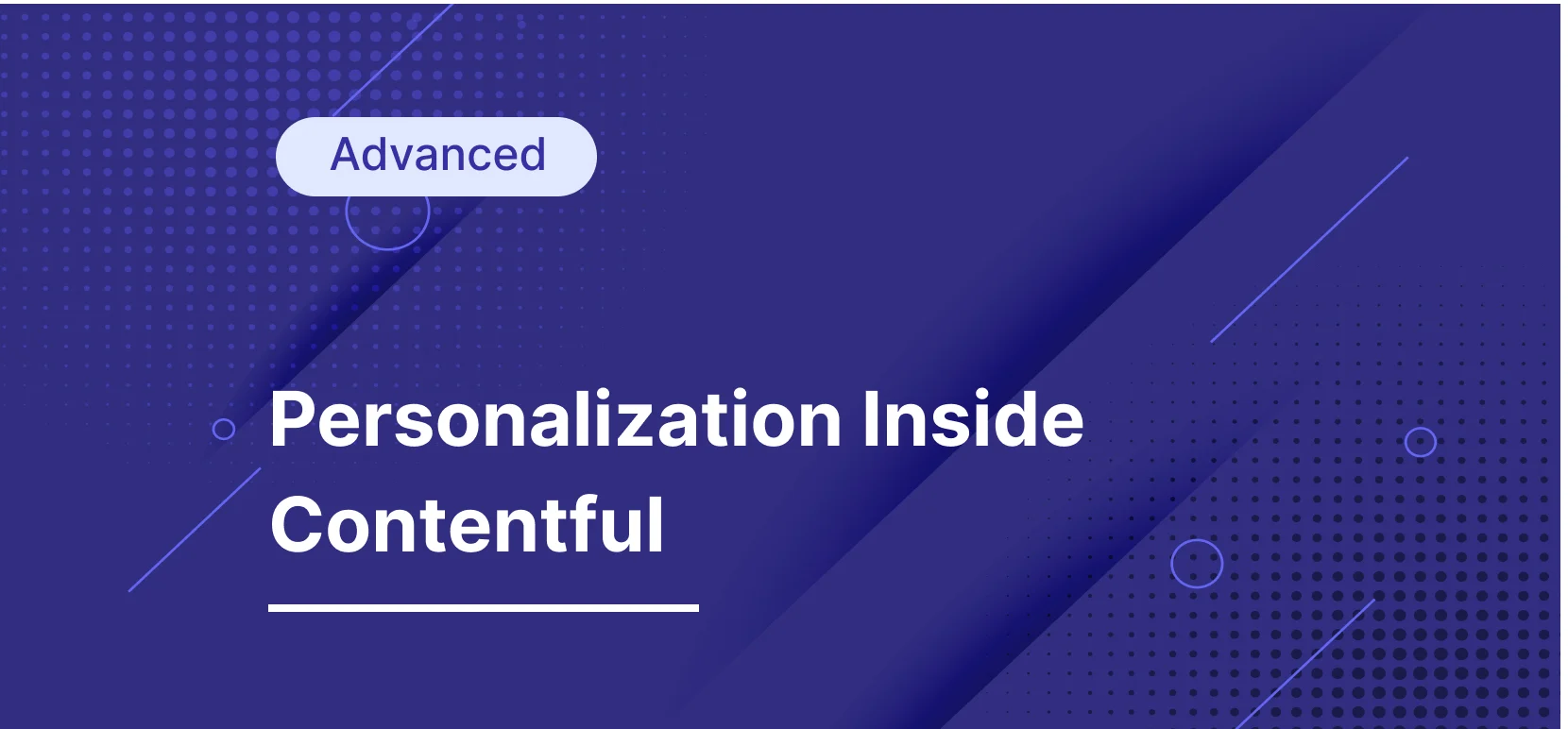- Personalization
Increase Your Conversions with Personalization Based on Paid Campaigns
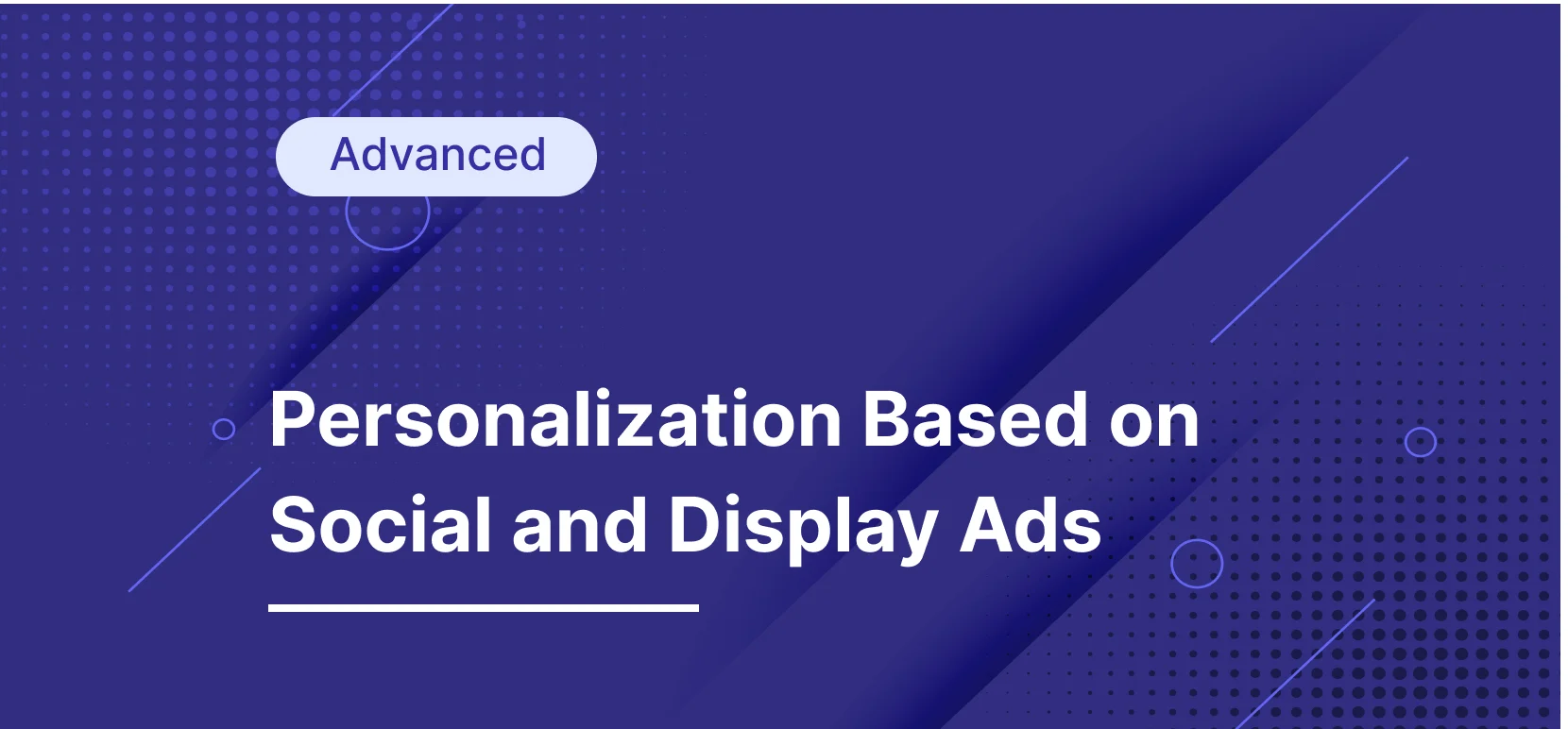
When visitors land on a webpage via paid advertisements, they often encounter a jarring disconnect.
The messaging on the landing page frequently deviates from the ad copy that brought them there. This mismatch creates a disjointed user experience, potentially deterring the visitor from exploring further or making a purchase.
Our customers' experiences have reinforced this theory time and again. When an ad's content aligns perfectly with the content of the landing page it leads to, the conversion rate invariably increases. This is the power of message matching – it bridges the gap between advertisement and landing page, creating a seamless and satisfying user experience.
Message matching doesn't require you to increase your ad spend. Rather, it focuses on optimizing the existing resources to deliver a more impactful, personalized user experience. By aligning the messaging on your ads and landing pages, you can significantly enhance the effectiveness of your paid campaigns, driving higher conversions on your website.
Before jumping to the details, here's a short video showcasing personalization based on paid campaigns with Ninetailed:
This playbook is a comprehensive guide to leveraging personalization for message matching in your paid campaigns. It will provide insights, strategies, and best practices to help you harmonize your ad content with your landing pages, thereby boosting your conversion rates without inflating your advertising budget.
How Ruggable Boosted Its Conversions with Homepage Personalization Based on Paid Campaigns
Let's take a look at a real-life example that illustrates the power of personalization in paid campaigns.
Ruggable, an innovative interior brand known for its patented 2-piece rugs, took personalization to a new level by creating two distinct experiences on its website.
Ruggable recognized that their customer base comprised two primary segments — dog owners and cat owners. They decided to capitalize on this insight by launching two separate paid campaigns targeting each group. However, they didn't stop at just targeted ad content. They extended this personalization strategy right through to their website.
Dog-Related Campaigns: Visitors who landed on Ruggable's website via dog-related paid campaigns were greeted with dog-centric content. This could include images of dogs enjoying Ruggable's rugs, testimonials from dog-owning customers, or even a special collection of rugs ideal for households with dogs. This tailored experience resonated strongly with dog owners, making them feel understood and catered to.
Cat-Related Campaigns: Similarly, visitors arriving from cat-related paid campaigns were met with a plethora of cat-related content. This might encompass pictures of cats lounging on Ruggable's rugs, reviews from cat-parent customers, or a curated selection of rugs perfect for feline-friendly homes. This personalized experience appealed to cat owners, reinforcing the brand's understanding of their unique needs.

By matching the ad message to the landing page experience, Ruggable created a seamless journey for their customers.
The result?
increase in conversion rate by 25%
click-through rate jump by 7 times
decrease in personalization creation time from 2 days to 30 minutes
This example demonstrates the profound impact of personalization, particularly when it's consistently applied across the customer journey, from paid ads to landing pages.
How to Create Personalized Experiences Based on Paid Campaigns Inside Your CMS
Step 0: Setting Up the Stage
In order to make everything easier to understand, let’s imagine, the ad for this personalized experience is the following ad.
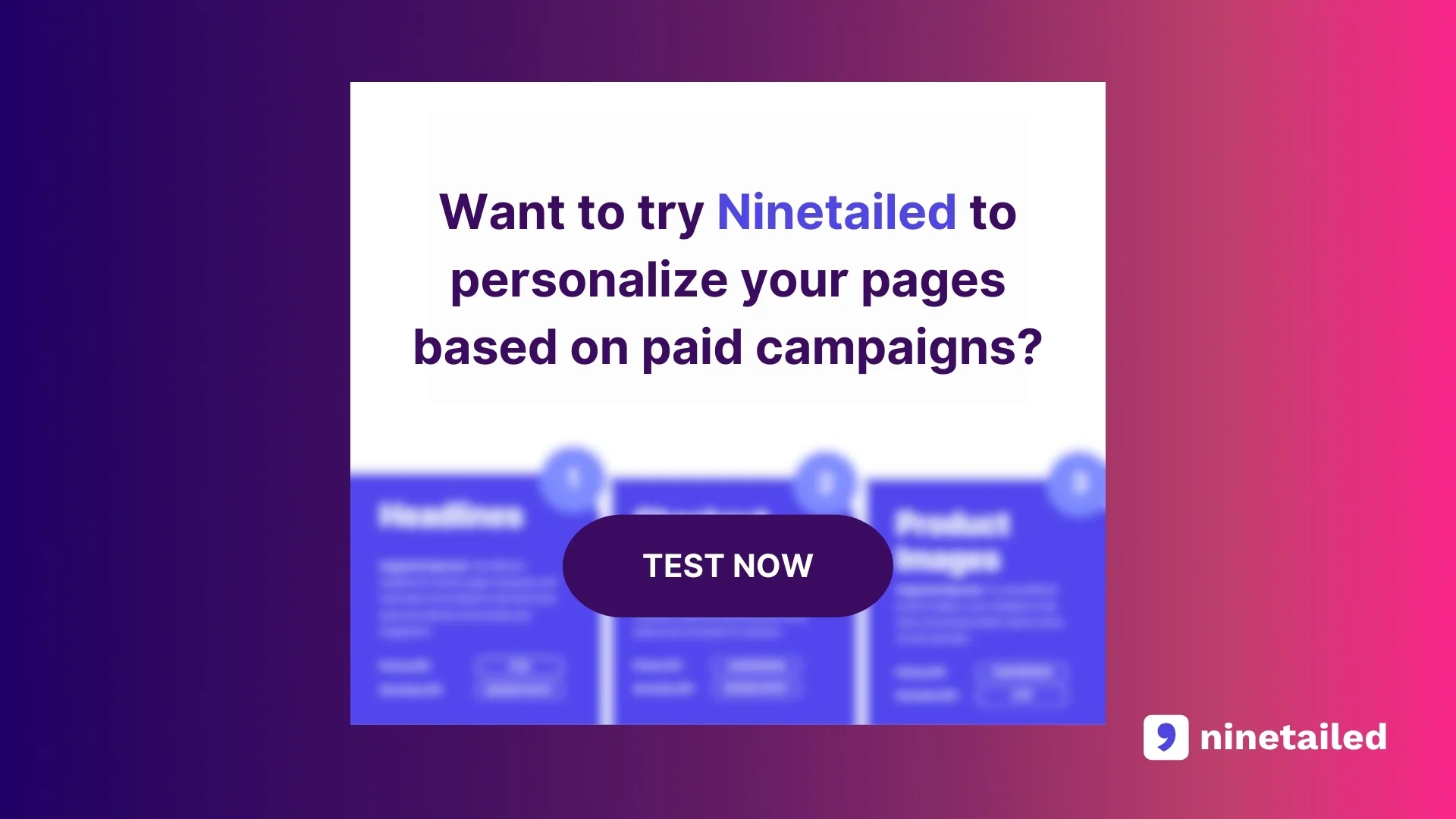
From now on, we’ll be using this ad to define our audience and create the personalized experience.
Step 1: Defining the Audience and Creating Personalized Content
The first step of this process involves creating an audience for your specific campaign. In this case, for personalization based on paid campaigns, we’ll be using UTM parameters to define our audience segment. Here, you can be more granular by creating the audience segment by using all the parameters:
campaign name
campaign source
campaign medium
campaign term
campaign content
However, we’ll be using only the campaign name in this case:

Once you have your audience defined, the next step is to create personalized content that resonates with this group. This involves tailoring your message to reflect the preferences, needs, and aspirations of your audience segment.
Step 2: Testing the Personalized Experience with Ninetailed’s Preview Widget
Since personalized experiences are for specific audiences and based on specific conditions, previewing a personalized experience can be a challenge. This is where Ninetailed’s Preview Widget comes into play.
With Ninetailed’s Preview Widget, you can preview all of your experiences. All you need to do is:
Choose the audience from the list
Select the personalized experience you want to preview
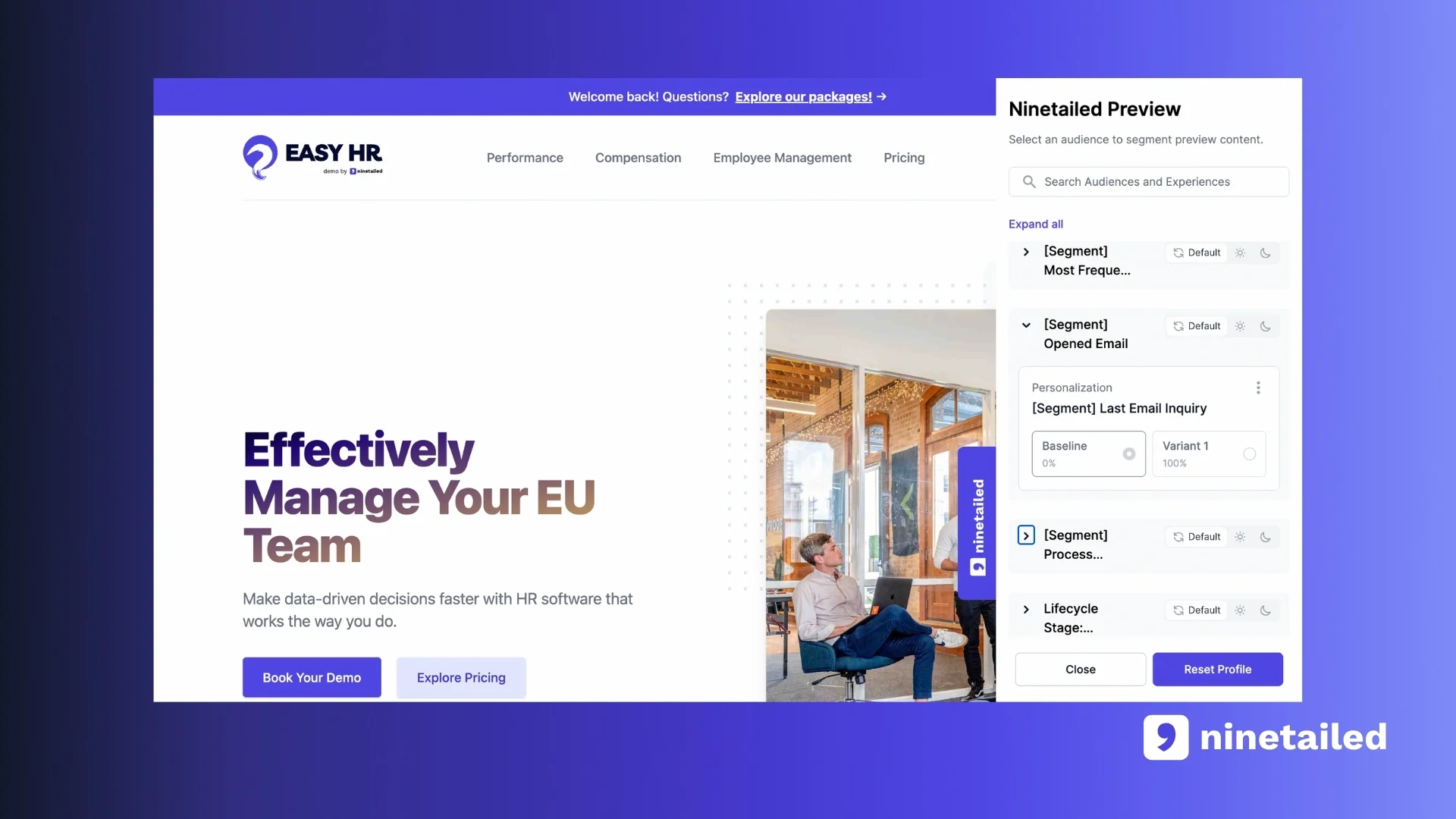
Step 3: Understanding the ROI of Personalization
Up until this point, you read how to define audience segments and create personalized experiences inside your CMS and preview all the personalized experiences you created.
How do you know if your personalization efforts are working?
This is one of the major challenges for marketers today. However, with Ninetailed, you have everything you need to segment your audience, personalize the experiences, and analyze the results.

With Ninetailed’s Experience Insights, you can easily:
Understand the impact of personalization on conversion value and conversion rate
Display the conversion uplift and the additional number of leads you successfully converted with personalization
Compare the personalized variant with the control group at ease
By focusing on these essential metrics, you can easily track the success of your personalized experiences, make data-driven decisions, and optimize your strategies for maximum effectiveness.
Ninetailed’s Insights capabilities don’t stop there. Ninetailed also offers Audience Insights and Component Insights.
Determining what content to experiment with or personalize starts with understanding your audience segments. Audience Insights visualizes the number of profiles and sessions your audience segments had over time.

You can use this information to identify the audience segments with the highest impact for personalized and/or experimental content.
Now you know the details about your audience segments. So, which content should you personalize first?
Component Insights, another addition to Ninetailed’s segmentation capabilities, is the feature that shows you which content components are seen how many times by specific audience segments.

Component Insights tabulates what content entries specific audience segments have seen. You can use this information to identify the highest-impact content entries for personalized and/or experimental content.
Want to Try This Personalization Use Case Now?
Are you eager to see the personalization based on campaigns in action?
Just click the ad below:
Here, you can also see the default experience and personalized experience for the Talk to Our Experts page:
The Bottom Line
Personalization is no longer a luxury—it's a necessity. As we've seen in our playbook, personalization can significantly enhance the performance of your paid campaigns without increasing your ad spend. However, implementing personalization can often seem daunting, especially when it involves coordinating multiple elements like ad content and landing page experiences. That's where Ninetailed comes in.
Ninetailed revolutionizes the process of creating personalized experiences based on paid campaigns, making it easier and more efficient than ever before. Here's how:
Everything Is Inside the CMS
With Ninetailed, you don't have to juggle multiple platforms or tools to create personalized experiences. Everything is housed within the CMS. This means you can easily create your target audiences and create personalized experiences inside your content solution. It streamlines the process, saving time and reducing complexity.
Independence from Developers
Personalization doesn't have to mean endless back-and-forth with your development team.
With Ninetailed, you're in control.
Ninetailed seamlessly integrates with your content management system, meaning you can create, modify, and publish personalized experiences without the need for coding knowledge or developer assistance. This empowers you to react quickly to market trends, adjust personalized experiences on the fly, and maintain the momentum of your marketing efforts.
Leverage Your Own Data
One of the most powerful aspects of Ninetailed is its ability to leverage your own data. You can use insights from your customer data to inform your personalization strategy and tailor landing page experiences to match your audience's preferences, behaviors, and needs. Plus, Ninetailed's flexibility means you can adapt and refine your approach as new data comes in, ensuring your personalization strategy remains as dynamic and responsive as your audience.
In conclusion, personalization is a potent tool in the arsenal of any digital marketer. With Ninetailed, harnessing this power is easier and more accessible than ever before. By keeping everything inside the CMS, eliminating dependency on developers, and allowing you to leverage your own data, Ninetailed equips you with everything you need to create compelling, personalized experiences that boost the performance of your paid campaigns.
Get in touch to learn how Ninetailed personalization, experimentation, and insights works inside your CMS
